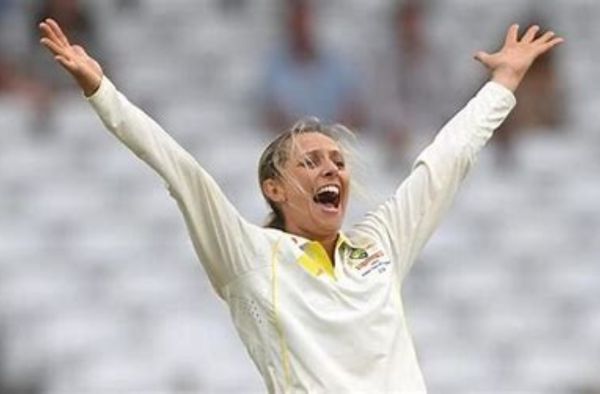The Women’s Ashes series has become a cornerstone of international cricket. With a multi-format structure introduced in 2013, this series is unique, combining Tests, ODIs, and T20Is to decide the ultimate winner on a points-based system.

However, players and fans alike have expressed a desire for more Test cricket, a format that continues to showcase the growing skill and popularity of women’s cricket.
Australian all-rounder Ashleigh Gardner has been a vocal advocate for expanding the Test format within the Ashes. Reflecting on the significance of the longer format, she said, “From [the] workload [point of view], it would be quite tough with how busy our summers are, but personally I would love to see three, three, three.”
She also highlighted the challenges of scheduling, saying, “It’s obviously going to make the tours a lot longer, [and] not sure where you are going to fit it in, knowing we are still going to have to play overseas competitions as well. It would be interesting to see over the next four to five years where that gets to. But I know personally I’d love to play more Test cricket against England. Playing the one Test feels like a bit of novelty sometimes.”
Gardner’s passion for the format is underscored by her stellar performance in the 2023 Ashes Test at Trent Bridge, where she took 8-66 in the final innings as well as 4 for 99 in the first innings. She believes that the dynamic matchups between Australia and England deserve a larger stage in the form of an expanded Test series.
England’s Tammy Beaumont, who etched her name in history as England’s first double-century in the longest format with her 208 off 331 at Trent Bridge during the same series, echoed Gardner’s sentiments. Highlighting the unique narratives that Test cricket builds, she shared, “Absolutely, I completely agree with Ash. I’d love to see three, three, three.”
She elaborated on the unique appeal of Test cricket, “The best thing about the Ashes is the narrative, the rivalry, how it builds over time.”
Using the Border-Gavaskar Trophy as an example, she explained how repeated battles between players enhance the game’s storytelling, “You saw in the India-Australia men’s Test series, the narratives build in a five-match series, and even in a three-match series, whether it’s the kind of things like [Jasprit] Bumrah always getting the same people out or things like that. As an opening batter, that’s part of why you love the game, that battle of trying to maybe get one-up on an opening bowler. Think it builds even more in Test cricket.”
This narrative-driven rivalry in the Women’s Ashes has captivated fans, drawing record crowds, including a world-record 23,207 attendees across five days of the 2023 Trent Bridge Test.
Despite the enthusiasm of players, logistical constraints make it unlikely for additional Tests to be added in the near future. The ICC’s Future Tours Programme (FTP) for the next four years includes no multi-Test series for women’s cricket. Furthermore, the relocation of India’s Women’s Premier League (WPL) to January has tightened the cricketing calendar, making scheduling an extended Ashes series increasingly complex.
Cricket Australia CEO Nick Hockley acknowledged the challenges, stating, “Space in the calendar is a real challenge. What I would like to see is more countries playing multi-format series more regularly.”
This year’s Ashes will be the last opportunity for elite women’s cricket in Australia to occupy the prime summer holiday window until at least 2029. With the MCG Test being a historic day-night encounter, it holds symbolic importance for the growth of women’s cricket.
Gardner emphasized the series’ significance, “The Ashes in general [is] such a big series, pretty much just behind the World Cup for us in my opinion. We’ve been so successful over the last five or six years, it’s probably one part of our game we’ve been a little bit disappointed with is not seeing as many people as we would have liked.”
The stage is set for another electrifying battle in the upcoming 2025 Ashes, the series kicks off with three ODIs in Sydney on January 12, Melbourne on January 14, and Hobart on January 16, followed by three T20Is in Sydney on January 20, Canberra on January 23, and Adelaide on January 25. The series concludes with a historic Day-Night Test from January 30 to February 2 at the MCG, the first women’s Test at the venue in 75 years and its first pink-ball encounter.

Loves all things female cricket